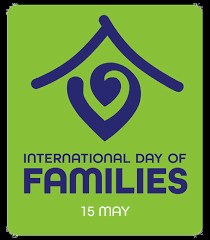This briefing was co-organized by the United Nations Division for Social Policy and Development (DSPD) and the Department of Public Information Non-Governmental Organizations (DPI NGO) in observation of the International Day of Families on May 15th, 2017.

World family organization
The speakers discussed the vital role of early childhood education in a child’s development and the role of parental education to ensure family well-being. In addition, the relation between corporate responsibility, work-family balance, and the global home index was depicted. Furthermore, the speakers conveyed the role of media within a child’s development and within the promotion of parental involvement.
Eduardo Garcia Rolland conveyed how the relationship between genes and the environment is closer than ever before. He expressed that within the first year of life, the brain grows at a pace of 700/1000 new neural connections per second. The plasticity of the brain is greatest within the first year of life. This stage is considered as the most important for a child’s development. Rolland discussed how 204 million children are not developmentally on track. He cited an increase in attendance to early childhood education as a way to augment a child’s development.
Patricia Debeljuh discussed how parents working long hours in a job that lacks flexibility can cause damage to the quality of their life. She expressed the necessity of families for the maintenance of sustainable societies. Diego Barroso depicted how parenting education is highly effective. He cited the importance of legislative support for families. Following this, Michael Robb discussed how media can impact the development of a child. Background television was cited as an issue which can have a negative impact on the quality and quantity of the interaction between a parent and a child.
Meeting: Briefing entitled “Families, Education and Well-Being”
Date/ Location: Thursday, May 18, 2017; 11:00-12:45; Conference Room 4
Speakers: Esuna Dugarova, Policy Specialist, UNDP; Eduardo Garcia Rolland, Early Childhood Development ECD-Specialist, UNICEF; Patricia Debeljuh, IAE Business School, Austral University; Diego Barroso, Director of Family Enrichment Courses. Coordination and Expansion, International Federation for Family Development; Michael Robb, Director of Research, Common Sense Media
Written By: WIT Representative Donna Sunny









 The session was organized by the co-facilitators to get comments from member states and permanent observers of the United Nations, on the Ministerial Declaration for the 2016 High-level Political Forum (HLPF) on Sustainable Development. Ambassador Gustavo, in his opening remarks, stated that this is the first to follow-up and implement the 2030Sustainable Development Agenda.
The session was organized by the co-facilitators to get comments from member states and permanent observers of the United Nations, on the Ministerial Declaration for the 2016 High-level Political Forum (HLPF) on Sustainable Development. Ambassador Gustavo, in his opening remarks, stated that this is the first to follow-up and implement the 2030Sustainable Development Agenda.

